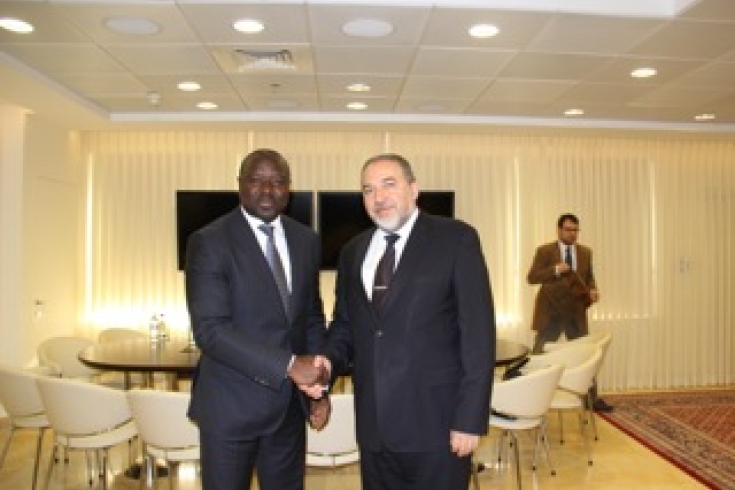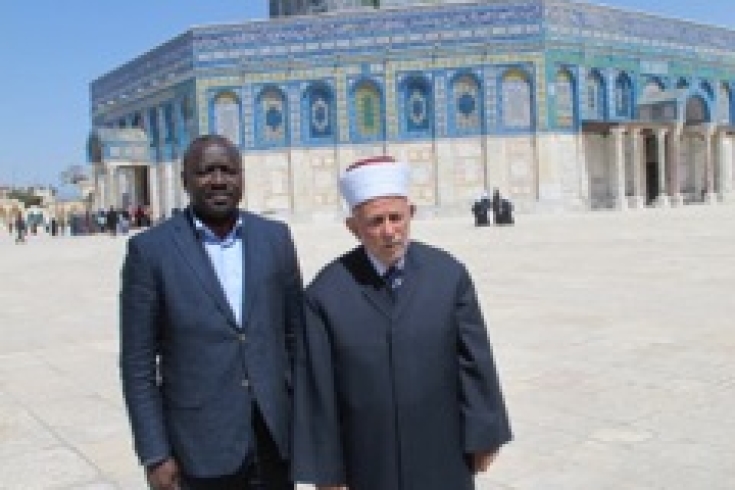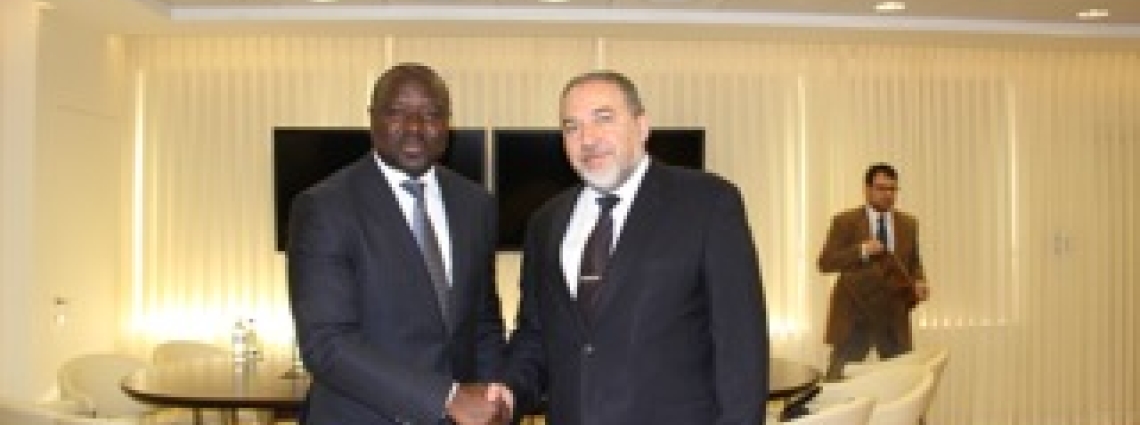Israel's close cooperation with the CTBTO

Executive Secretary Lassina Zerbo (left) with Israel's Foreign Minister Avigdor Lieberman

...and with Yuval Steinitz, Minister of Intelligence, International Relations and Strategic Affairs.
I honestly believe that Israel could be one of the first of the remaining Annex 2 States to ratify. We will do our best to work with Israel to further enhance conditions of confidence in the verification capabilities and trust in the monitoring system, which I believe will pave the way for Israel to play a leadership role in the region towards entry into force of the Treaty. In this regard, data transmission from China was appreciated and seen as an important step in the right direction.

Zerbo with Sheikh Azzam Khatib at the Dome of the Rock
The CTBT bans all nuclear explosions. The CTBTO is building a verification regime to monitor the planet for compliance with the Treaty. Nearly 90% of the global network of 337 facilities to monitor underground, the oceans and the atmosphere for nuclear explosions have already been established.
Auxiliary seismic station AS48 in Eliath, Israel - click for station profile.
18 Mar 2014
